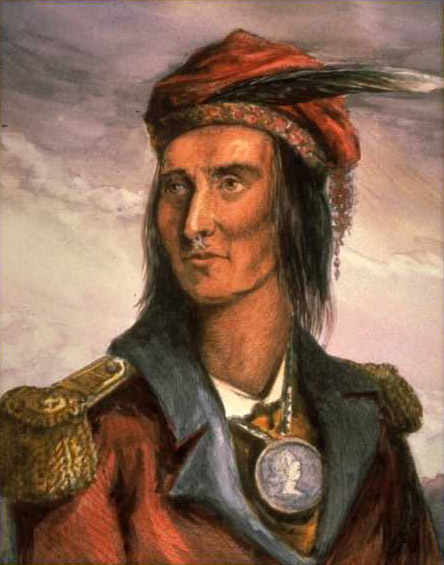There are myriad references in 166 pages of documents to making sure natives and their "pivotal role" in the war to repel American invaders are properly recognized at historical 1812 sites and in interpretation centres.
"Even if it's overdue, we welcome this," said Maurice Switzer, communications director for The Union of Ontario Indians, an advocacy group for 42 member First Nations across Ontario.
"The one thing that's important is that we do be engaged in the process. We don't want a bunch of non-native academics or civil servants deciding on what's the best way to do this. It's our history. Ask us."
Mr. Switzer says a perfect example of what is wrong with how the native role in the war has been underplayed is the famous Niagara-area memorial to British officer Sir Isaac Brock, who died resisting an American advance at the Battle of Queenston Heights in October 1812.
"One of the most memorable monuments in Canada is the one of Sir Isaac Brock overlooking Niagara River," he said. The statue is 56 metres high. "I knew there was a little marker somewhere on the park grounds," for the native role in the battle. "I couldn't find one staffer that could identify that location for me. Way down a hillside, all overgrown with moss and weeds, was a little teeny marker that acknowledges 'harassment' by Indians of the enemy. No specific names."
Mr. Switzer wonders if the government is reluctant to play up native involvement in helping build the country because it might strengthen land rights claims.
"It just sort of seems to take a long, long time to get around to admitting First Nations peoples [and] Aboriginal Peoples have played a big role in contributing to Canada being the successful country it is," he adds.
"It's quite likely that if it wasn't for the First Nations' support of leaders like Tecumseh . . . the flags that are flying over our public buildings in this country would probably be stars and stripes."
The British-Indian alliance is why many writers speculate that the Indians would've fared better under British rule.
For more on the subject, see Winning in Tecumseh's Vision.


No comments:
Post a Comment
Note: Only a member of this blog may post a comment.